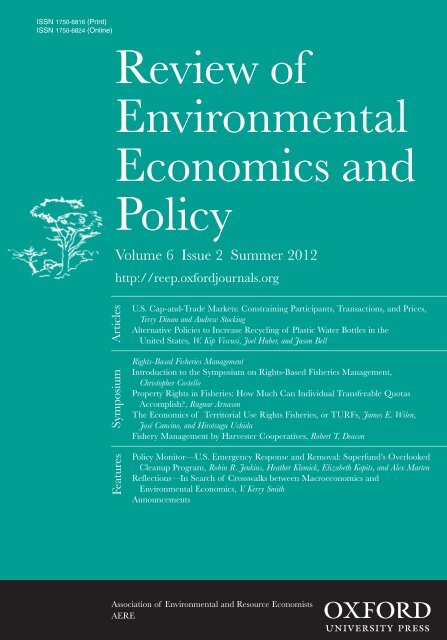反弹效应和美国燃油经济性标准的拟议回滚
IF 6.6
3区 经济学
Q1 ECONOMICS
引用次数: 12
摘要
2018年8月,特朗普政府提议取消2020-2026年的燃油经济性标准,这在政策界引发了巨大争议。取消燃油经济性标准的理由是基于一项分析,该分析表明,在受该标准影响的车辆的使用寿命期间,以前的燃油经济性标准将导致超过12,000人死亡。这些估计死亡人数的最大贡献者是分析中假设的反弹效应,该效应从先前规则的10%增加到拟议规则的20%。这篇文章总结了目前关于反弹效应的知识,因为它特别涉及到燃油经济性标准。对最近文献的仔细回顾支持了一个接近10%的中心估计,从而削弱了一个被用来支持标准倒退的关键论点。然而,在这个中心估计周围有很大的不确定性,以及几个在中心估计中没有考虑到的鲜为人知的因素,这进一步增加了我们对反弹效应的不确定性。这凸显了敏感性分析和进一步研究这一政策相关主题的重要性。本文章由计算机程序翻译,如有差异,请以英文原文为准。
The Rebound Effect and the Proposed Rollback of U.S. Fuel Economy Standards
The Trump administration’s August 2018 proposed rollback of the 2020–2026 fuel economy standards has been the subject of great controversy in the policy community. The justification for the rollback was based on an analysis indicating that the previous fuel economy standards would be associated with more than 12,000 additional fatalities over the lifetime of the vehicles affected by the standards. The largest contributor to these estimated fatalities is the rebound effect assumed in the analysis, which was increased from 10 percent in the previous rule to 20 percent in the proposed rule. This article summarizes the current state of knowledge about the rebound effect as it relates specifically to fuel economy standards. A careful review of the recent literature supports a central estimate closer to 10 percent, thus undermining a key argument that has been used to support the rollback of the standards. However, there are wide bounds of uncertainty around this central estimate as well as several poorly understood factors not accounted for in the central estimates, which further increase our uncertainty about the rebound effect. This highlights the importance of sensitivity analysis and further research on this policy-relevant topic.
求助全文
通过发布文献求助,成功后即可免费获取论文全文。
去求助
来源期刊
CiteScore
10.80
自引率
0.00%
发文量
25
期刊介绍:
The Review of Environmental Economics and Policy fills the gap between traditional academic journals and the general interest press by providing a widely accessible yet scholarly source for the latest thinking on environmental economics and related policy. The Review publishes symposia, articles, and regular features that contribute to one or more of the following goals: •to identify and synthesize lessons learned from recent and ongoing environmental economics research; •to provide economic analysis of environmental policy issues; •to promote the sharing of ideas and perspectives among the various sub-fields of environmental economics;

 求助内容:
求助内容: 应助结果提醒方式:
应助结果提醒方式:


